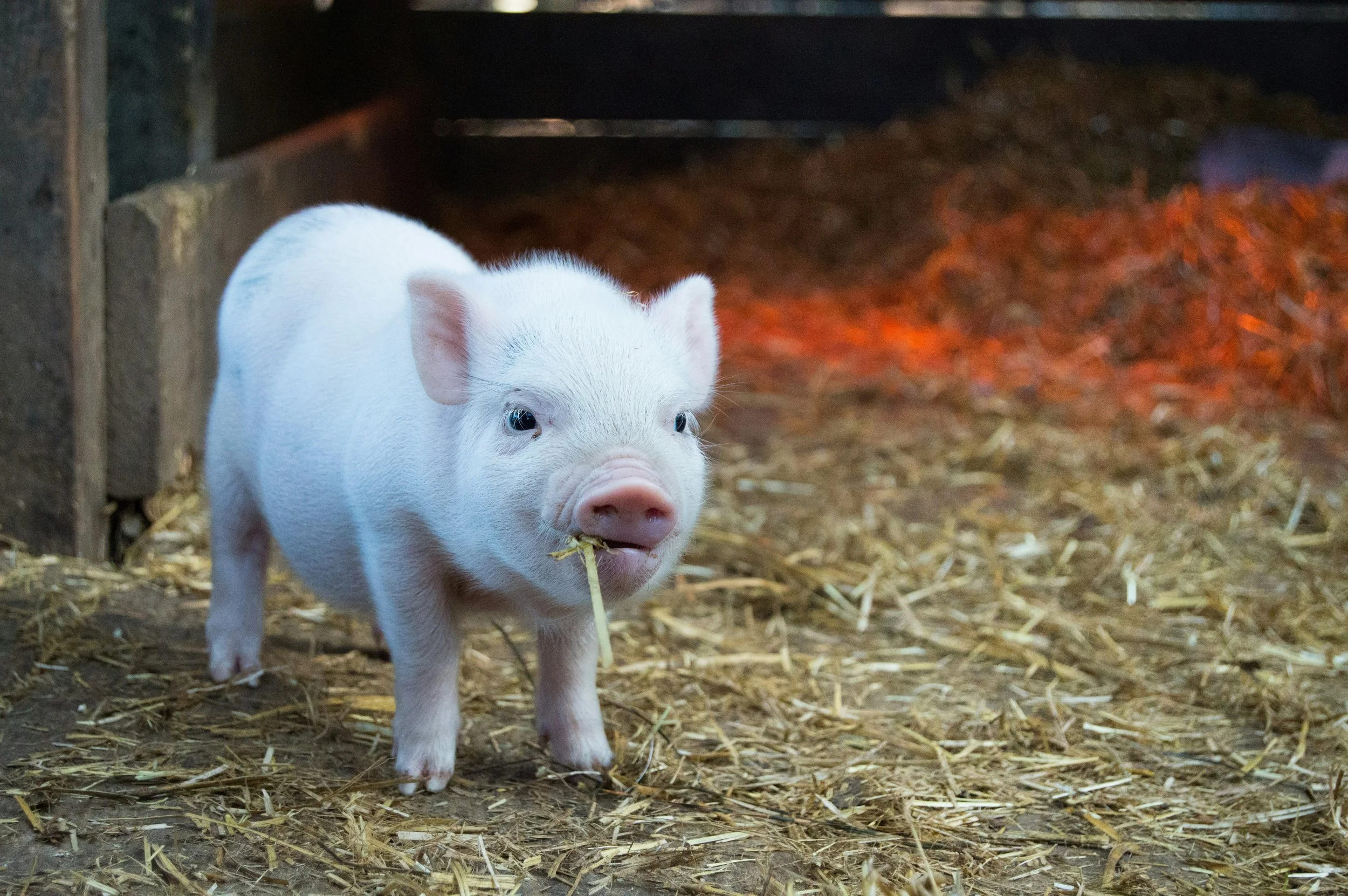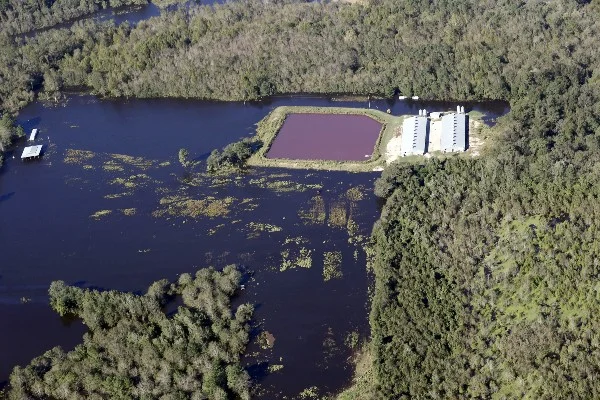When you think of bees, what comes to mind? Many might think of honey. Others might think of the sight of a bee landing on a newly bloomed spring flower. Few think of the bee as a pivotal player in the agricultural world. However, that is precisely what the bee is: a necessary player in the production of the world’s food supply.
President Trump and Immigration: The Implications for American Farmers
In a speech given in Phoenix, Arizona, President Donald Trump stated that illegal immigration is “one of the greatest challenges facing our country today.” Indeed, throughout the President’s campaign, immigration was used to spark outrage against the existing immigration policy of the United States. However, a critical aspect of immigration reform that has not been given enough consideration is the potential impact on American farms.
Daily Necessity Turned into Difficult Tasks to Stay Healthy
Imagine having to boil all of your water before using it in your home. Many of us have come so accustomed to having clean water at our finger tips that the thought of boiling water before use is a foreign concept that we believe only happens in other places in the world. As a result of the water purity systems that have developed over time, clean water is just something that we now expect to have. However, for many people in the city of Pittsburgh, having clean water was recently hard to come by.
Life in the Fast Lane: Horse Racing's Drug Addiction
Ralph Waldo Emerson wisely stated that money often costs too much, and it seems that horse racing profits are no longer justifying the cost to horses, which are being harmed by the rampant abuse of drugs, used both to numb and to enhance a horse’s performance. Prevention of such abuse has historically taken the form of urine and blood testing after races, but recently, more and more governing bodies are adopting regulations allowing off-track drug testing at private facilities, raising privacy issues for those affected by the regulations.
Legality of Insuring Marijuana: Where There's Smoke, There's Fire
Crop insurance is big business in America. The federal government provided, through the Federal Crop Insurance Program (FCIC), 1.2 million crop insurance policies in 2015, covering 120 different crop varieties over 297 million acres, with a value of roughly $102 billion. Private insurers, who are regulated by each individual state, provided another $37 billion in coverage. This amounts to almost a $140 billion dollar industry per year. Agriculture, as a whole, amounts to roughly 5% of the gross domestic product (GDP) and employs around 10% of the workforce in the United States. As such a large and vital market in the economy, there is a large public interest in protecting the agriculture market through the use of insurance. When natural disasters occur and destroy large swaths of crop, or market fluctuations decrease the price of a crop that was valuable when planted, but is no longer valuable at harvest, crop insurance allows farmers to “pay their bankers, fertilizer suppliers, equipment providers and landlords; purchase their production inputs for the next season; and give them the confidence to make long term investments that will increase their production efficiency.”
Evicting the EPA? Trump's Media Blackout Fuels Uncertainty Surrounding the Future of the Environmental Protection Agency
Just a few days after becoming president, Donald Trump rashly decided to implement a complete media blackout at the Environmental Protection Agency (EPA). In addition to the media freeze, the President forbid EPA staff from awarding any new contracts or grants. The email sent to EPA employees read, “New EPA administration has asked that all contract and grant awards be temporarily suspended, effective immediately. Until we receive further clarification, which we hope to have soon, please construe this to include task orders and work assignments.” The announcement of the blackout coupled with President Trump’s looming nomination for the EPA Administrator, Scott Pruitt, has sent the media into a frenzy, and further, has caused anguish among scientists, state and local officials, universities, and Native American tribes that often benefit from the EPA’s grants. Across the country, EPA employees have protested the nomination of Pruitt. This controversy comes from the fact that Pruitt has close ties with the fossil fuel industry and has openly denied the existence of climate change. The fears of EPA employees and supporters may be warranted in light of the fact that Pruitt has made headway on the President’s plan to “get rid of” the EPA entirely. His plan includes intentions to repeal climate change rules, cut staff, close regional offices, and permanently weaken the agency’s regulatory authority.
Got Milk? Changes in Pasteurization on the Horizon for Milk Processing Extending Shelf-Life
In 1864, Louis Pasteur invented the process that we recognize today as pasteurization. Pasteur was a French chemist who had, at that time, had already contributed to the studies of health and science with his revolutionary explanation of germ theory in 1859. Because of Pasteur's growing fame, Napoleon III approached Pasteur with the problem that French wine, which was prized around Europe, was spoiling before it would reach its destination. After a series of experiments, Pasteur discovered that by heating the wine to fifty-five degrees it would kill the bacteria without destroying the taste. This process was later applied to milk and solidified Pasteur's importance to the health and sciences. Since that time, the process of pasteurization has not fundamentally changed. The most common type of pasteurization in the United States is referred to as High Temperature-Short Time (HTST).This process uses metal plates and hot water to heat the milk to at least 161°F for no less than fifteen seconds.
California's Water Woes
This January, California received what it has been waiting five years for. The exceptionally thirsty state has been in the midst of a drought, which has led to a three year (and counting) state of emergency and a call to reduce the state’s water consumption by over twenty-five percent. The effects of this drought have been felt throughout the state, as well as the country. Farmers are scrambling to do what they can as their lands dry out; in 2015 alone, the drought cost California farmers an estimated $2.7 billion. Meanwhile, trees are dying at an alarming rate. As estimated by the National Forest Service, there are over 100 million dead trees in California’s forests. For an environment that is prone to wildfires, this is a disaster waiting to happen.
Wasteful Flooding
On October 8, 2016, Hurricane Matthew hit the eastern U.S. seaboard with category one force. Among the several states hit with Matthew’s force was the state of North Carolina. As with all hurricanes, heavy rains ensued. With heavy rains came flooding, more specifically, the flooding of anaerobic lagoons. An anaerobic lagoon, also known as an animal waste lagoon, is a lined or unlined man-made body of water that is used for wastewater treatment. The flooding of these lagoons has presented health and environmental concerns for the state of North Carolina. Because of an increase in animal operations, the North Carolina legislature has sought to regulate the disposal of animal waste as a means to protect water quality and to protect against other environmental issues.














